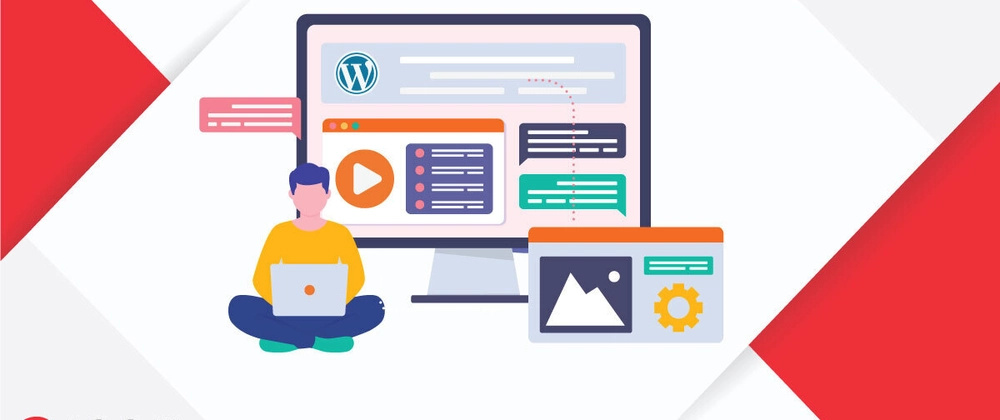When it comes to building large-scale websites, many people think of complex platforms or custom-coded solutions. However, WordPress, which started as a simple blogging tool, has evolved into a powerful content management system (CMS) capable of handling even large and complex websites.
But is WordPress for large-scale websites truly a viable option? Let’s explore its strengths, limitations, and whether it can meet the demands of big websites.
What is a Large-Scale Website?
Before we dive into the capabilities of WordPress, let’s clarify what qualifies as a large-scale website:
High traffic volume: Websites receiving thousands or millions of visitors monthly.
Extensive content: Sites with hundreds or thousands of pages, blog posts, or product listings.
Complex functionality: Advanced features like membership systems, ecommerce platforms, or multi-user portals.
Heavy database usage: Sites relying on large databases for dynamic content delivery.
Examples of large-scale websites include news portals, ecommerce stores, corporate sites, and educational platforms.
Why Use WordPress for Large-Scale Websites?
Despite being known for smaller websites, WordPress is now widely used for large-scale projects. Here’s why:
1. Highly Scalable Architecture
WordPress is built on a flexible and scalable architecture, making it capable of handling extensive content and high traffic loads.
Scalability Benefits:
Efficient database management: WordPress efficiently handles large databases with caching and optimized queries.
Flexible hosting options: Scalable cloud hosting providers (e.g., AWS, Kinsta) offer WordPress-specific solutions.
Content Delivery Networks (CDN): Integrating CDNs ensures faster content delivery, even during high-traffic periods.
2. Custom Development Capabilities
Large-scale websites often require custom functionality, which WordPress can handle through:
- Custom plugins: Developers can create tailored plugins to meet specific business needs.
- Custom post types: Manage different content formats (e.g., portfolios, testimonials, case studies).
- Theme customization: Build unique, scalable themes with custom code.
Partnering with a WordPress development company ensures your website is optimized for large-scale needs.
3. Performance Optimization with Caching and CDN
For large websites, performance is crucial. WordPress supports advanced optimization techniques:
- Caching plugins: Tools like WP Rocket and W3 Total Cache reduce server load and improve page speed.
- CDN integration: CDNs like Cloudflare or BunnyCDN distribute content across global servers, boosting load times.
- Image optimization: Plugins like Smush reduce image sizes without compromising quality.
4. Robust Security Features
Large-scale websites are frequent targets for hackers, making security essential. WordPress offers:
- Security plugins: Tools like Wordfence and Sucuri protect against malware and brute force attacks.
- Two-factor authentication (2FA): Adds an extra layer of login security.
- Regular updates: WordPress core, themes, and plugins are frequently updated to patch vulnerabilities.
5. Multi-Site and Multi-Language Support
Large-scale websites often need to serve different regions or run multiple sites under one umbrella. WordPress offers:
- Multisite functionality: Manage multiple sites from a single WordPress installation.
- Multilingual plugins: Tools like WPML or Polylang add multi-language support.
Challenges of Using WordPress for Large-Scale Websites
While WordPress is capable of handling large-scale websites, there are some potential challenges:
1. Performance Issues with Poor Optimization
If not optimized properly, large WordPress sites can suffer from slow loading times.
Common causes:
- Too many plugins: Excessive plugins can slow down performance.
- Unoptimized images and scripts: Large, uncompressed files increase load times.
- Inefficient database queries: Poor database optimization can lead to slow content delivery.
Solution:
- Use only necessary, lightweight plugins.
- Optimize images, scripts, and database queries.
- Invest in a reliable hosting service optimized for large-scale WordPress sites.
2. Complex Customization Requires Skilled Development
Building a fully customized, large-scale WordPress site requires development expertise.
Complexities include:
- Custom post types and taxonomies.
- Custom plugin and theme development.
- API integrations and third-party services.
Solution:
Collaborate with a WordPress development company to ensure proper customization and performance optimization.
3. Security Vulnerabilities if Not Properly Managed
Large-scale websites are more vulnerable to attacks. Improper security practices can leave your website exposed.
Solution:
- Implement regular security audits.
- Use reputable security plugins.
- Choose a hosting provider with strong security measures.
Best Practices for Building Large-Scale Websites on WordPress
If you’re considering WordPress for your large-scale website, here are some best practices to follow:
1. Choose a High-Performance Hosting Provider
Large-scale websites need robust hosting solutions with high uptime and fast loading speeds.
Recommended hosting providers:
- Kinsta: Offers managed WordPress hosting with great performance.
- WP Engine: Known for scalable, secure WordPress hosting.
- Cloudways: Provides flexible cloud hosting solutions.
2. Use a Content Delivery Network (CDN)
CDNs distribute your content across multiple servers globally, reducing load times and improving availability.
Popular CDNs:
- Cloudflare
- BunnyCDN
- KeyCDN
3. Implement Caching and Speed Optimization
Caching reduces server load and speeds up your website.
Top caching plugins:
- WP Rocket: User-friendly and effective for large sites.
- W3 Total Cache: Great for complex caching configurations.
4. Use Advanced Database Optimization
Large websites rely heavily on database performance. Optimize it by:
Cleaning up unused data and spam comments.
- Using database optimization plugins like WP-Optimize.
- Running regular database checks.
5. Regularly Monitor and Update Your Website
Keep your website fast, secure, and bug-free by performing regular maintenance.
Key tasks:
- Updating WordPress core, plugins, and themes.
- Monitoring for broken links.
- Backing up your site regularly.
Final Thoughts
Yes, WordPress for large-scale websites is not only possible but also practical with the right setup and optimization. Its scalability, flexibility, and wide range of plugins make it a powerful CMS for handling complex, high-traffic websites.
To build a high-performing, secure, and scalable large-scale WordPress website, consider partnering with a WordPress development company. Their expertise ensures your website is well-optimized, secure, and tailored to meet your business needs.



Top comments (0)